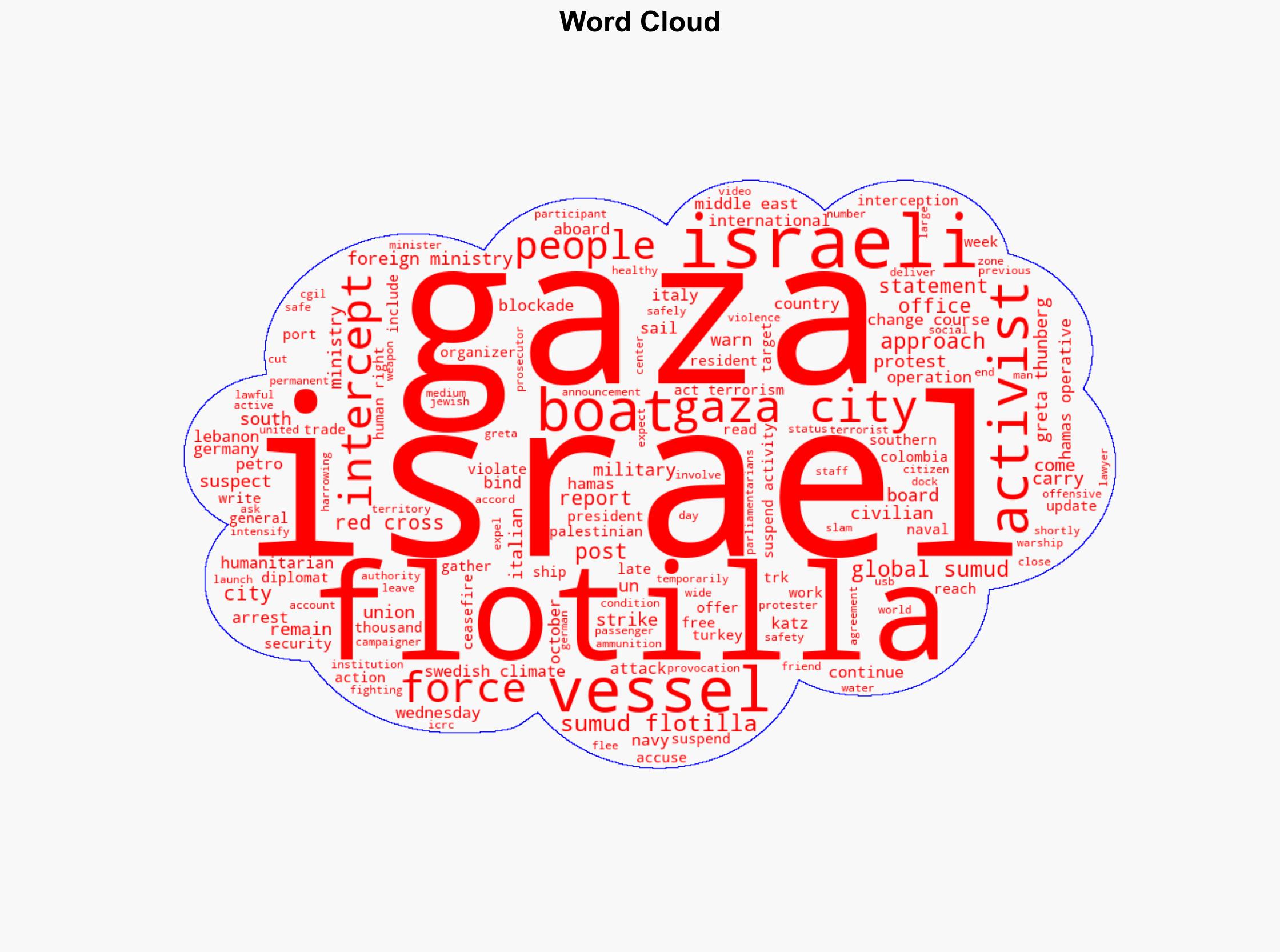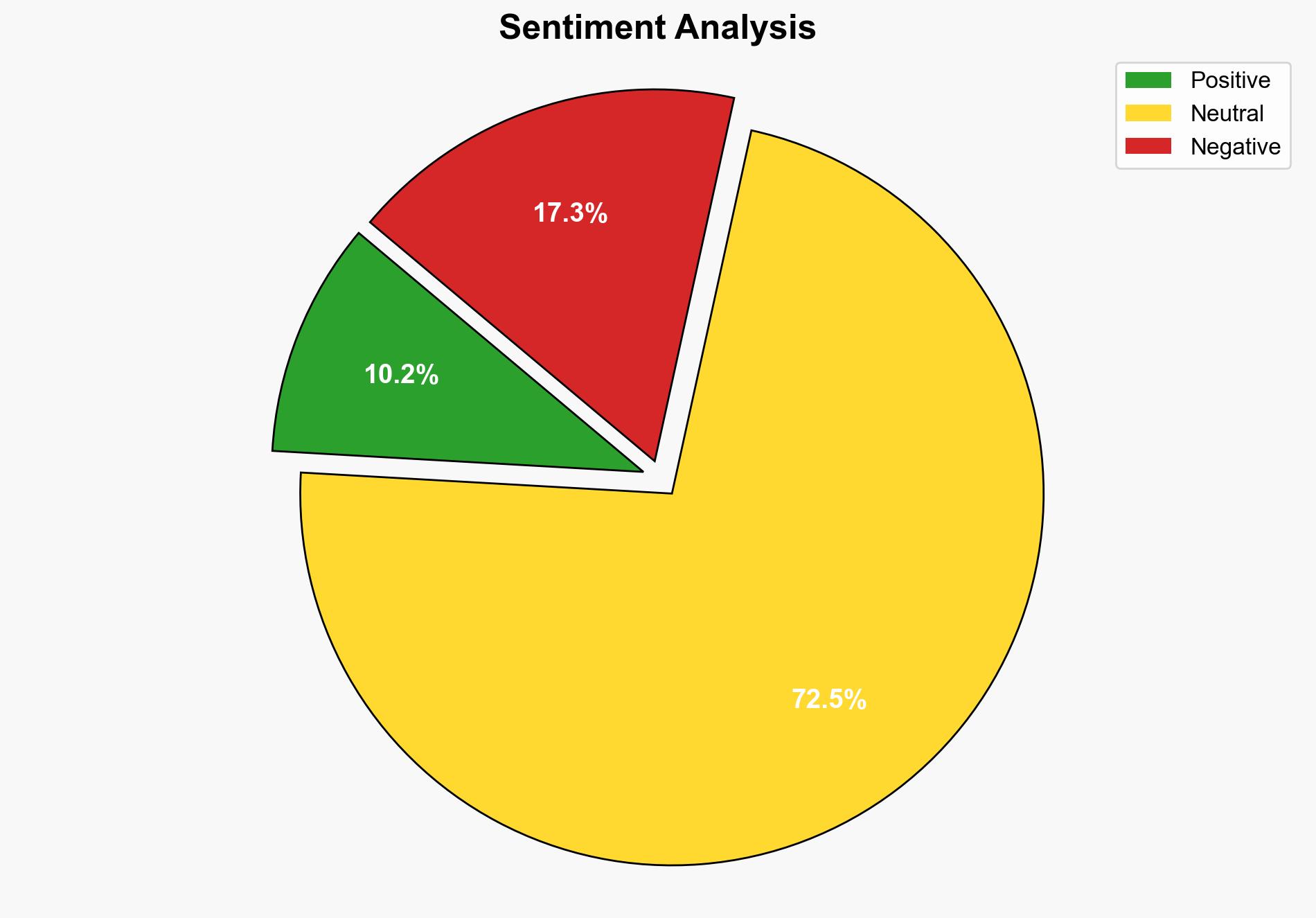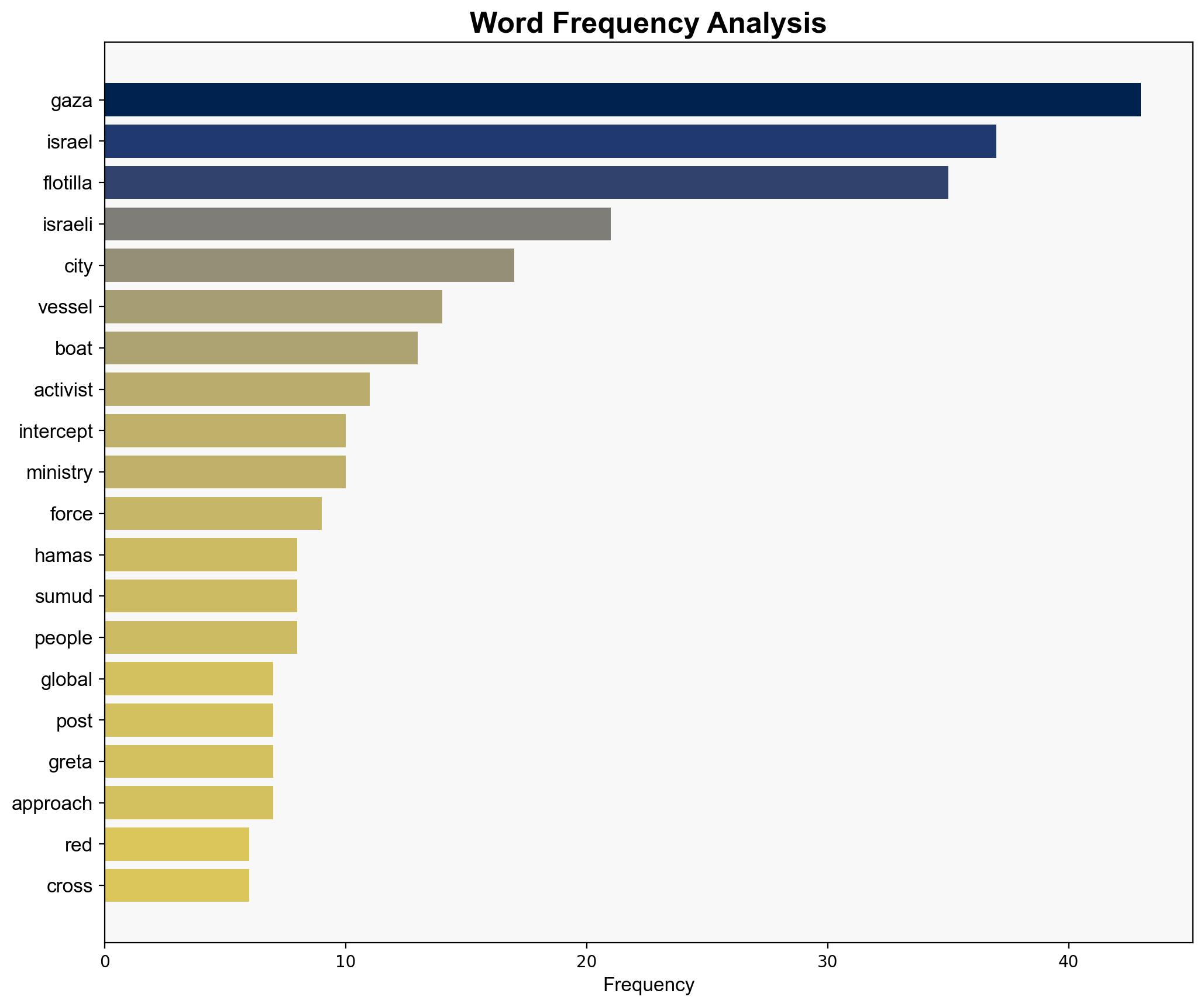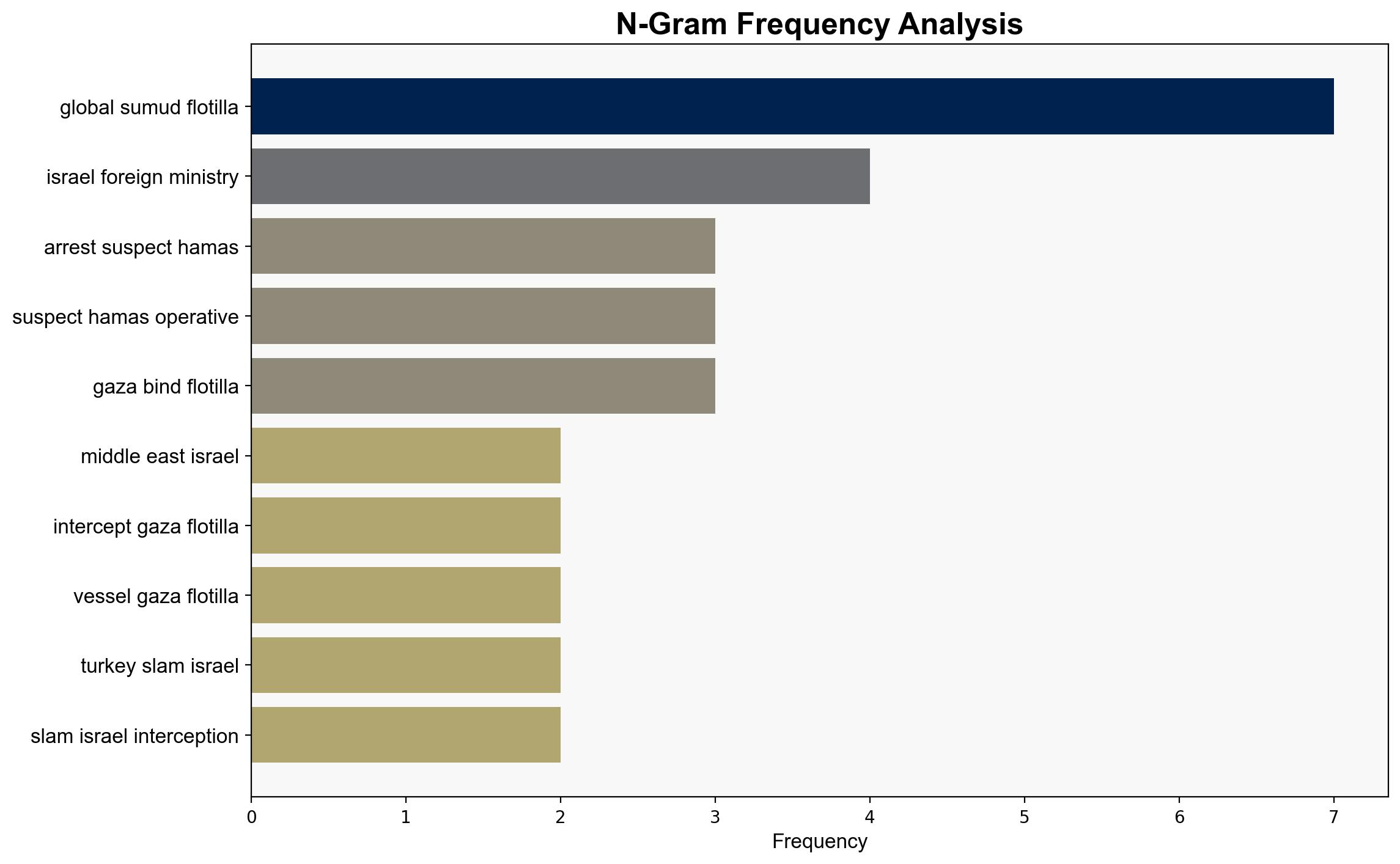Middle East Israel intercepts Gaza aid flotilla activists – DW (English)
Published on: 2025-10-01
Intelligence Report: Middle East Israel intercepts Gaza aid flotilla activists – DW (English)
1. BLUF (Bottom Line Up Front)
The most supported hypothesis is that Israel’s interception of the Gaza aid flotilla is primarily a security measure to enforce its naval blockade, despite international criticism. Confidence level: Moderate. Recommended action: Engage in diplomatic dialogue to address humanitarian concerns while maintaining regional security.
2. Competing Hypotheses
1. **Security Enforcement Hypothesis**: Israel intercepted the flotilla to enforce its naval blockade on Gaza, which it deems necessary for national security and to prevent arms smuggling to Hamas.
2. **Provocation and Political Maneuver Hypothesis**: The interception was a calculated political maneuver by Israel to provoke international reaction and justify its security policies, while the flotilla aimed to highlight humanitarian issues and gain global sympathy.
Using ACH 2.0, the first hypothesis is better supported by Israel’s consistent policy of enforcing blockades and the lack of evidence suggesting a strategic benefit from provocation. The second hypothesis is weakened by the absence of direct evidence of intentional provocation by Israel.
3. Key Assumptions and Red Flags
– **Assumptions**: The security enforcement hypothesis assumes Israel’s blockade is primarily for security, not political leverage. The provocation hypothesis assumes Israel benefits from international criticism.
– **Red Flags**: The lack of confirmed information about the flotilla’s intentions and the status of participants raises questions about potential misinformation or propaganda.
– **Blind Spots**: Limited visibility into internal Israeli decision-making processes and the flotilla organizers’ strategic goals.
4. Implications and Strategic Risks
– **Geopolitical**: Increased tensions between Israel and countries like Turkey and Colombia could lead to diplomatic rifts and impact regional alliances.
– **Economic**: Potential disruptions in trade due to strikes and protests in Italy and other countries could affect regional economies.
– **Psychological**: Heightened public sentiment against Israel might fuel further protests and unrest in various regions.
5. Recommendations and Outlook
- **Diplomatic Engagement**: Initiate dialogue between Israel and affected countries to address humanitarian concerns and reduce tensions.
- **Humanitarian Measures**: Encourage Israel to allow monitored humanitarian aid into Gaza to alleviate international criticism.
- **Scenario Projections**:
- **Best Case**: Diplomatic resolutions lead to eased tensions and improved humanitarian conditions in Gaza.
- **Worst Case**: Escalation of protests and diplomatic conflicts result in regional instability and economic disruptions.
- **Most Likely**: Continued diplomatic tensions with sporadic protests, but no significant change in the status quo.
6. Key Individuals and Entities
– **Benjamin Netanyahu**: Prime Minister of Israel, involved in decision-making regarding the blockade.
– **Gustavo Petro**: President of Colombia, vocal critic of Israel’s actions.
– **Turkish Ministry of Foreign Affairs**: Accused Israel of terrorism, highlighting international diplomatic tensions.
7. Thematic Tags
national security threats, regional focus, humanitarian issues, diplomatic relations





